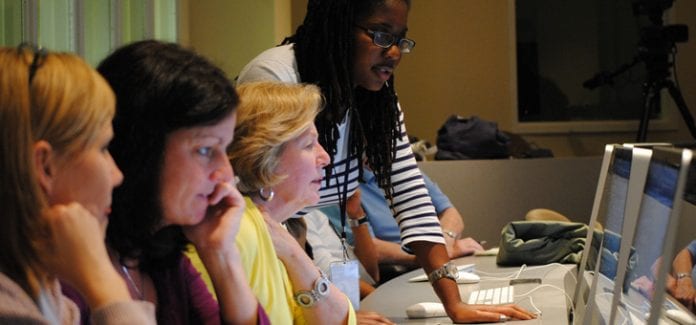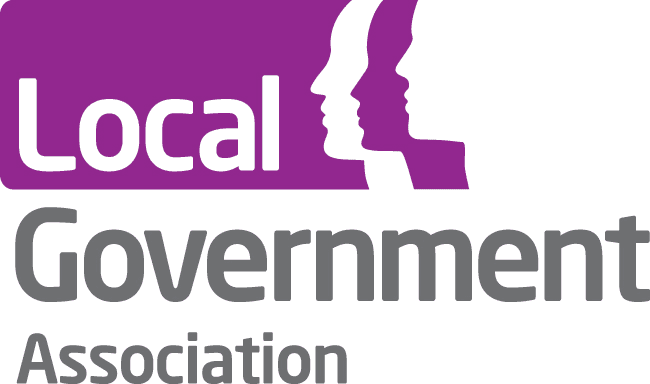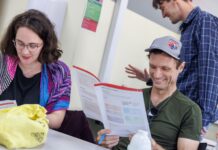Thousands of disadvantaged adults are being held back from vital support to help them get on in life with funding for adult learning falling by almost a half over the last decade, councils warn today.
The Local Government Association is concerned that reductions in adult education funding have coincided with a drop of 3.8 million adult learners since 2010. This has left just 33 per cent of adults on courses or in training – a record low since figures began in 1996.
Despite needing it the most, adults with the lowest qualifications are the least likely to access adult training.
In order to boost support for disadvantaged adults, the LGA is urging the Government to at least double the Adult Education Budget – some of which funds local authority adult and community education provision – from £1.5 billion to £3 billion.
Councils run successful adult learning centres to support their communities. However faced with unprecedented funding cuts to adult education, many councils face the prospect of reducing provision or winding down their adult learning centres altogether.
The LGA said increasing adult education funding and devolving it to councils and combined authorities would enable them to deliver much-needed skills provision to help adults that need support the most get the skills they need to progress in life, either by acting as stepping stones to further education or employment, or by giving them the skills to lead more independent and healthier lives, in a way that cannot be achieved by our centralised employment and skills system run from Whitehall.
This would improve access for people to a range of entry level courses through to professional qualifications, provide interview support and confidence-boosting programmes and help more people already in work with courses to re-train, upskill or move up in the workplace.
As our economy is changing, with digitalisation, extended working lives and our exit from the European Union, upskilling our adult workforce must be a top priority for councils to play their part in driving sustainable growth.
The LGA has warned that six million people in England risk being without a job or in work they are over-qualified for by 2030, which could lead to a potential loss of £120 billion in economic output by the end of the decade.
Cllr Kevin Bentley, Chairman of the LGA’s People and Places Board, said:
“Additional funding to local authority adult education providers has the ability to transform people’s lives by supporting the most vulnerable, including the long-term unemployed, or those out of work due to redundancy, ill-health or caring responsibilities to get the support they need.
“A lack of support is holding back adults that need help the most – putting the mental health and wellbeing of our communities at risk and increasing their likelihood of isolation and loneliness.
“Councils are committed to supporting the Government to reduce inequality in our regions. With much-needed investment, adult learning can improve health and wellbeing, upskill our workforce, support disadvantaged groups, reduce unemployment and underemployment, promote economic growth, reduce the welfare bill, and decrease social isolation, anxiety and loneliness.
“By increasing adult education funding and handing control over how it’s spent locally, councils and combined authorities can help revolutionise adult education support, getting thousands more people the support they need to get on in their careers.”
CASE STUDIES
- North Tyneside Council’s Employment and Skills service is made up of Connexions, Adult Learning and Employability Projects. Between April and December 2019, North Tyneside Council’s Employability Projects supported 77 adults into work, 59 into training and a further 35 into voluntary and work experience. In addition, latest figures show (2018/19), 490 of the 1,144 learners supported by North Tyneside Council’s Adult Learning service had progressed into employment or further learning. One of the projects included Moving on Tyne and Wear, funded by the National Lottery Community Fund and the European Social Fund. Independent analysis of the programme by economic research firm Ecorys revealed that for every £1 invested in the Moving on Tyne and Wear programme generated a £1.40 return. The project specifically targets adults with mental and physical health issues and runs confidence-building and well-being programmes as well as providing interview and other pre-application support.
- North Tyneside Council is one of 18 partners on the Moving on Tyne and Wear programme. Through the project, they supported Donna Mear into a placement as a trainee Marine Biologist at Blue Reef Aquarium, having received her qualifications years before but never entering the zoology sector. North Tyneside Council purchased the equipment needed for the placement, helped Donna complete her application and provided interview training. Donna now works part-time at the aquarium and hosts animal workshops and educational talks with schools – something she said she’d never thought she could have done without support from the council and Moving On Tyne and Wear. Donna is pursuing her PhD dream and hopes to begin in September.
- Having lost his fingers on both hands, his right leg and half of his left foot following a bout of meningitis as a young child, Daniel felt his disability would hold him back. With the support of a work coach from Generation North East, who helped him find the apprenticeship, update his CV and practice interview techniques, Daniel secured a Business Admin Apprenticeship at North Tyneside Council and is looking forward to his career with renewed confidence.
- Lincolnshire County Council supported 7,511 adults onto 1,235 learning programmes during 2018/19. It targeted specific groups including people with learning difficulties and disabilities, no or low qualifications, the unemployed and residents from the most deprived neighbourhoods – which accounted for 20 per cent of learners. Almost 60 per cent of learners were aged between 30 and 59. A number of participants secured promotions or made career changes, with 92 per cent of learners saying their course helped to develop their self-confidence.
- Victoria, suffering with low self-esteem, back problems and other illnesses, took part in a ‘Get into Catering’ course, completing her Customer Service Level 1 qualification. By the end of the course Victoria had secured employment in a café in Lincoln. She said “this course has turned my life around. I am so happy with my new job and the fact that I am now off benefits”.
-
- A male learner in his mid-30s who had been out of work for a year attended an iPads for Beginners course and on completion secured a job at a large retail chain, citing the confidence and IT skills the course gave him as the reason for securing the job.
-
- Three learners completed a course in Hairdressing and went on to open their own salons. All three have since enrolled new trainees on future adult learning programmes at Skegness.
- Islington Council supports more than 1500 local residents every year through a wide variety of courses with many using them to upskill or change careers, while others use them to boost their self-confidence or as a stepping-stone to employment.
- Liz recently started work as a support worker after completing an Introduction to Adult Social Care course. She said: “I hadn’t worked for over 25 years as I was bringing up my children, but now they are off to university, so it was time to do something for me. Six months ago, I honestly thought I would only ever get a dead-end job that I didn’t enjoy, doing things I didn’t care about but now I have a career. This has changed my life. I would just say to anyone thinking about taking a course that you have nothing to lose.”
-
- Stephen completed his Entry Level English after he got laid off work. He said: “When I went to the Job Centre, I kept on getting forms. I couldn’t read them or fill them out, so I had to go to my brother who did it all for me. The course has got me thinking a bit more and getting up and out a lot more – I was just sitting around, and this has given me more confidence.”
-
- Olga, who is originally from Romania, said that the ESOL course she took to learn English made a difference to her life. She said: “I am very happy that I have been given the chance to learn English because I had a big problem speaking, listening and understanding and when you don’t understand it’s horrible. I am studying in Morley College in my first term of professional sewing and tailoring. The course is in English and I am happy that I can now understand and learn something new. I work part-time doing alterations in a dry-cleaners shop and as a cleaner but now I would like to find a job in the fashion industry.”
- Southampton City Council’s adult learning programme revealed that 91 per cent of learners said their confidence increases, 74 per cent said they felt more included and 67 per cent said it increased their health and wellbeing.
- Matt from Harefield in Southampton has Dyspraxia and Dyslexia and was referred to the Southampton City Council Life Skills Service in June 2018 after being out of employment for 4 years. He was given job coaching and travel training throughout a volunteer Receptionist placement at Sembal House Day Services, which ultimately led to permanent paid employment.
-
- Southampton City Council’s Employment Support Team helped local artist Jake secure a successful career after he’d been struggling with mental health issues. With their help, Jake has now held international art shows.
Help keep news FREE for our readers
Supporting your local community newspaper/online news outlet is crucial now more than ever. If you believe in independent journalism, then consider making a valuable contribution by making a one-time or monthly donation. We operate in rural areas where providing unbiased news can be challenging. Read More About Supporting The West Wales Chronicle
























